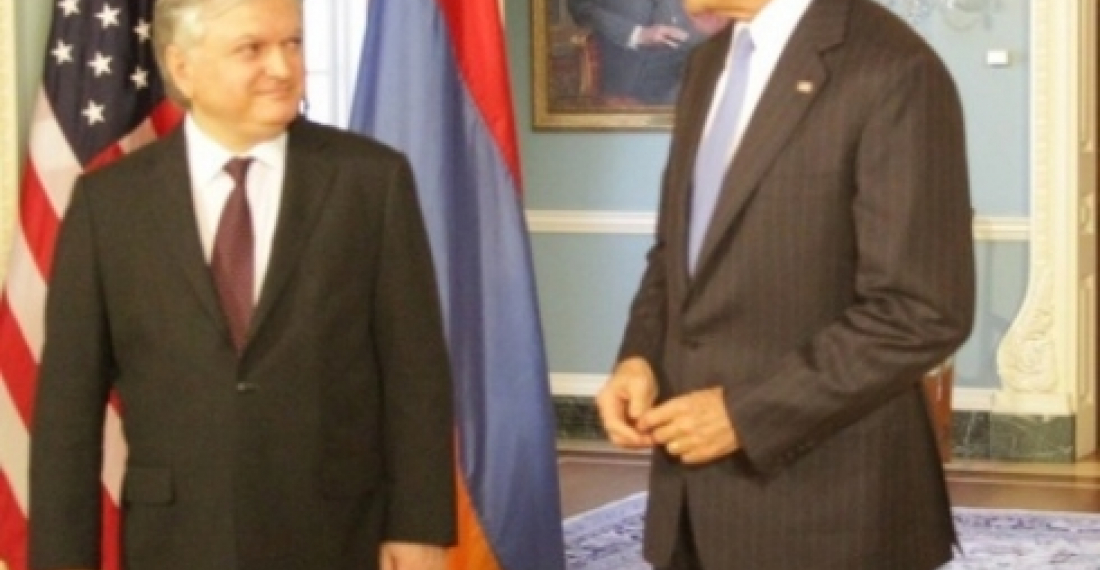US Secretarry of State John Kerry has continued with his efforts to secure a breakthrough in the Nagorno-Karabkh conflict resolution negotiations. On Tuesday morning he received at the State Department, Armenian Foreign Minister Edward Nalbandian. The meeting took place less than twenty four hours after a similar meeting between Kerry and Azerbaijani Foreign Minister, Elmar Mammadyarov..
Apart from indicating a new American engagement by the Obama administration to try to achieve a breakthrough in the negotiations for a resolution of the Karabakh conflict, Kerry, in his remarks prior to the meeting with the Armenian Foreign Minister, also called on the regional powers - Russia, Iran and Turkey, to also engage in trying to achieve an end to the current impasse.
Kerry stated:
"we all really want to try to see resolved one day the frozen conflict of Nagorno-Karabakh. It is critical that all the parties - when I say all the parties, I mean, obviously, the Azerbaijanis, but also Turkey, Russia, Iran, others - try to find a way to help break the impasse that has kept this struggle alive and always potentially dangerous.
On other issues, Kerry said that he was going to discuss with his Armenian counterpart "the economic partnership, the development of the economy and strengthening of democracy, and the security of our friends, the Armenian people."
On his part Foreign Minister Nalbandian said:"
"it is important to continue efforts to find exclusively peaceful solution to the Nagorno-Karabakh conflict based on the principles and norms of international law, particularly non-use of force, excessive force, self-determination, territorial integrity who are sharing the vision that the relations between Armenia and Turkey should be normalized without preconditions, who are sharing the same values of democracy, fundamental freedoms, liberty, human rights, market economy, who are very thankful that during the last two decades since our independence, United States extended very important support for Armenia, and we are thankful for that."
source: commonspace.eu with state.gov.







